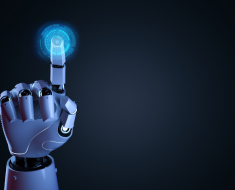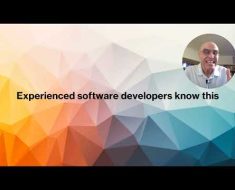Meta CEO Mark Zuckerberg said Thursday he was shaking up his company’s efforts on artificial intelligence and pouring money into massive data centers to try to beat his tech industry rivals in achieving human-level computer systems.
Zuckerberg said in a post on Facebook that he was bringing two of Meta’s existing research efforts “closer together”: a project called FAIR, which has focused on basic research, and a second named GenAI, which works on developing AI products for consumers.
“Our long term vision is to build general intelligence, open source it responsibly, and make it widely available so everyone can benefit,” he wrote in the post.
Zuckerberg did not define the term “general intelligence,” but Meta researchers and other AI experts have for years used the term “artificial general intelligence” to describe a still-theoretical form of AI that is at least as capable as humans.
Zuckerberg also said Meta was “building massive compute infrastructure to support our future roadmap,” including a stockpile of 350,000 computer chips known as H100s. The chips have been the go-to building block of AI data centers since Nvidia introduced them in 2022. The tech news website The Verge reported in December that Meta was tied with Microsoft as Nvidia’s largest customer for the H100.
Zuckerberg told The Verge in an interview published Thursday that the fierce competition to hire top AI scientists was unlike what he has seen before — making it all the more important for Meta to invest in tools for those scientists to use.
“We’re used to there being pretty intense talent wars,” he said, according to The Verge. “But there are different dynamics here with multiple companies going for the same profile, [and] a lot of [venture capitalists] and folks throwing money at different projects, making it easy for people to start different things externally.”
Yann LeCun, Meta’s chief AI scientist, said Thursday in a post on X that he believed the internal changes at Meta would “accelerate progress” on AI. He said the company’s AI research division, FAIR, was now a “sister organization” of the product division GenAI.
“FAIR is quite simply the best place in the world to advance AI research to the next level, and Meta is the best place in the world to get it in the hands of billions of people,” he said.
Zuckerberg and LeCun are two chief advocates of keeping AI technology more or less open-source — meaning that most of the tech could be available for use by most people, including rival companies. It’s a position that has sparked roiling debate within the tech industry, not only because it affects the business models of more secretive rivals but also because of concern about how open-source tech could be misused if widely available.
Last month, Meta and IBM launched a new group called AI Alliance to push for their open-source vision of AI, putting them in opposition to Google and OpenAI.




